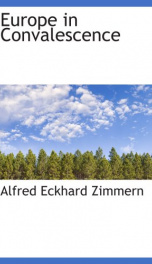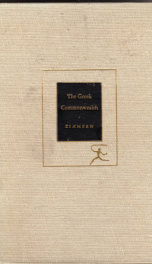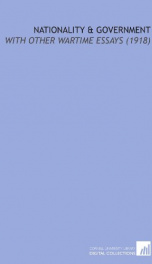europe in convalescence

Purchase of this book includes free trial access to www.million-books.com where you can read more than a million books for free. This is an OCR edition with typos. Excerpt from book: CHAPTER III FROM NOVEMBER II, IQlS, TO THE OPENING OF THE PEACE CONFERENCE the morning of November u the writer was one of those who stood at a Foreign Office window and watched Mr. Lloyd George at his door in Downing Street across the road, receiving the congratulations of the small crowd that had gathered at the news of the armistice. To the man in the street the Premier was the symbol of victory, and of the long effort now ended at last. But the men at the upper windows were looking, not back, but forward. His power they knew, and his energy, and his capacity for repairing what had been up to two years before an almost complete ignorance of Europe. Would he who now symbolized victory have the vision and the courage and the humility to become also Europe's chief artificer of peace and justice? For it was plain that, in the complex and difficult tasks that lay ahead, the chief responsibility would fall upon Britain. France, who had bornethe main and, for well-nigh two years, almost the whole brunt of the military effort, was unnerved and exhausted. America was new to European problems. If Britain rose to the height of a great opportunity, she could dominate the coming conference by her combination of ripe experience and unselfish detachment, and act as the interpreter of the wiser mind of America to an expectant Europe. On the afternoon of the same day chance brought the writer into contact with one who had come fresh from converse with the Premier. What he told was stunning, and what was even more stunning was the impression he conveyed of the atmosphere that he had just left. The Premier, so he said, was making ready for a General Election. This was not startling news in itself, although at such a moment, with Europe adrift and rudderless, it seemed a somewhat parochial p... --This text refers to an alternate Paperback edition.
Info about the book
Author:
Series:
Unknown
ISBN:
0836911172
Rating:
3/5 (2)Your rating:
0/5
Languge:
English
Users who have this book
Users who want this book
What readers are saying
What do you think? Write your own comment on this book!
write a commentif you like europe in convalescence try:
Other books by this author
Do you want to exchange books? It’s EASY!
Get registered and find other users who want to give their favourite books to good hands!




